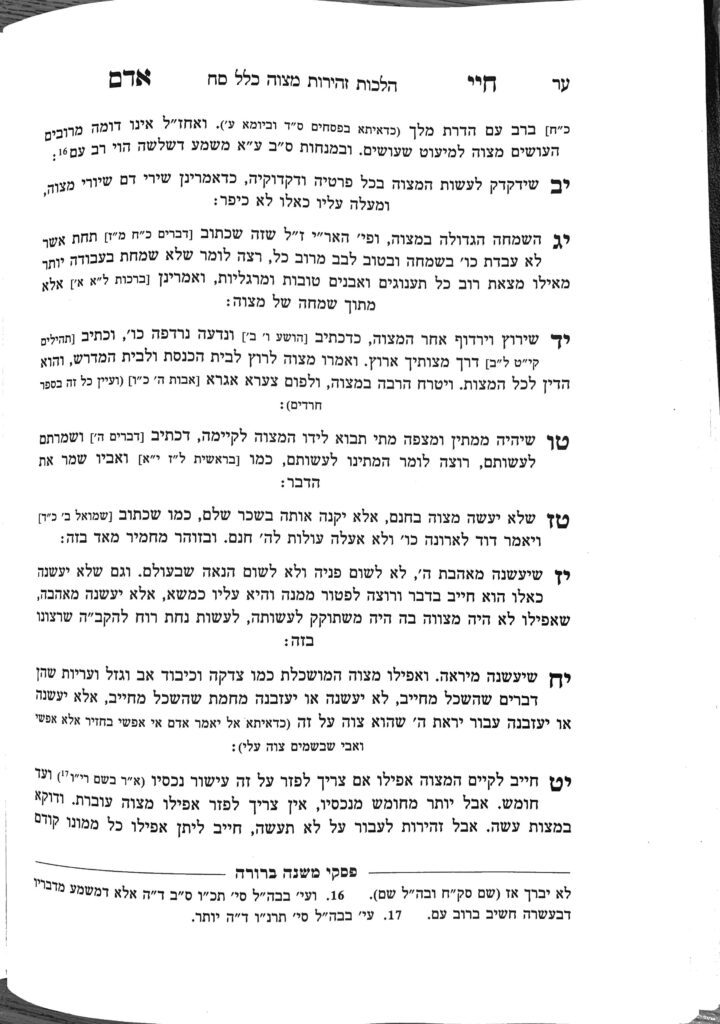We are continuing in siman 19, discussing the halachos of spending money on mitzvos. We have learned that one may refrain from performing a mitzvah (shev v’al taaseh) when the mitzvah will cost more than a fifth of their money, and must give up all of their money in order to avoid an aveirah.
In siman 656, the Biur Halacha writes that if one has a stable income coming in on a regular basis, there is no limitation of one fifth. We have learned that the limitation of one fifth was to prevent a person from becoming impoverished, but since this person has a steady income, they do not have this concern. To consider such a person an anus, unable to perform the mitzvah, would not be logical.
The Biur Halacha uses this idea to explain the Gemara which discusses an adult who never had a pidyon haben, and only realizes when it is time to give their own child a pidyon haben. The Gemara discusses whether the father or child takes precedence if the father only has 5 selaim. The Biur Halacha asks that according to what we have learned until now, if the father only has 5 selaim, he should be exempt from the mitzvah, because one is not chayav to give more than one fifth of their money for a mitzvah. The Biur Halacha concludes that the Gemara must be discussing a scenario such as ours, where the father has a steady income, so they could give away more than one fifth of their income for tzedakah.
We have learned that a person who is very wealthy does not have the limitation of one fifth. Additionally, a person who is deathly ill does not have the limitation, because the concern that they will become poor and need assistance from others does not apply. The Rema writes this concept in hilchos tzedakah regarding giving more than one fifth of a person’s money to tzedakah, and we can extrapolate to all other mitzvos as well
In Sefer Ahavas Chesed, the Chofetz Chaim discusses the halachos of tzedakah. He asks that we see people who spend way beyond their means on material items (e.g., a new car, etc.), so why should those people be limited to only giving one fifth of their money to tzedakah (or for a mitzvah). He remains unsure whether the limitation truly applies to them or not.
The Baal Hatanya writes that if a person wishes to give money or tzedakah as a tikun for aveiros, there is no one-fifth limit. The same way a person would not forgo an important surgery just because it will cost more than one fifth of their money, they may give more than one fifth of their money to tzedakah for the purpose of healing their neshama.
Summary
- A person must spend up to one fifth of their money in order to fulfill a mitzvah. A person must give up all of their money to avoid performing an aveirah.
- If a person has a steady income on a fixed basis, the limitation of one fifth does not apply to them.
- A person who is deathly ill does not have a limitation of one fifth.
- A person who spends significantly beyond his means on material items may not have a limitation of one fifth.
- A person who wishes to spend more than one fifth of their money for the purpose of teshuva or a tikkun is not limited to one fifth.



